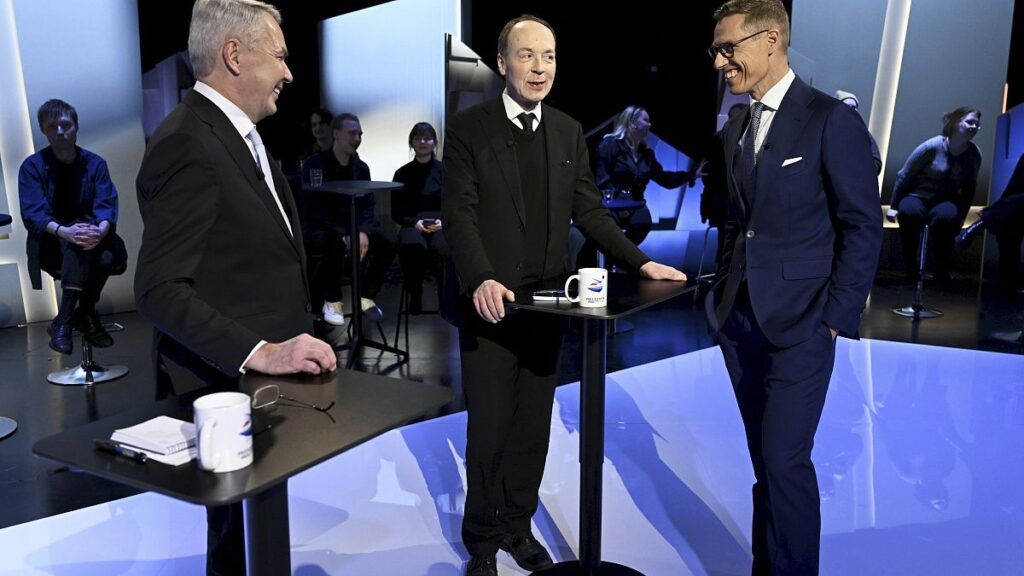Alexander Stubb of the National Coalition Party came out on top in the first round of Finland’s presidential election on Sunday, with around 28% of the early vote, according to Justice Ministry data.
Alexander Stubb wins first round of Finnish presidential election, poised for runoff, projections show
Former Prime Minister Alexander Stubb will face Pekka Haavisto in a runoff next month.
Alexander Stubb of the National Coalition Party came out on top in the first round of Finland’s presidential election on Sunday, with around 28% of the early vote, according to Justice Ministry data.
Liberal Pekka Haavistowa member of the Green Party, came in second with 25.5% of the vote, followed by the nationalist Jussi Halla-aho, a member of the Finns Party, with 17.5% of the vote, according to data from the Ministry of Justice.
This result will result in a February 11 runoff between Stubb and Haavisto, as neither candidate received more than half of the votes.
YLE’s prediction, very accurate in previous elections, is a mathematical model calculated on the basis of early voting and a certain number of Sunday votes according to official data provided by the Legal Registration Center. Exit polls are not generally used in Finland.
Stubb, 55, and Haavisto, 65, were the leading candidates running. Around 4.5 million voters chose, among nine candidates, the successor to the very popular President Sauli Niinistö, whose second six-year term expires in March. He was not eligible for re-election.
Polling stations closed at 8 p.m. (6 p.m. GMT). The initial participation rate was 74.9%.
Alexander Stubb represents the conservative National Coalition party and led the Finnish government in 2014-2015, while veteran Haavisto, a former UN diplomat and member of the Green League, is seeking the position for the third time as independent candidate.
Unlike most European countries, the president holds executive power in formulating foreign and security policy, particularly when dealing with countries outside the European Union such as the United States, Russia and China.
Supreme Commander of the Armies
The president is also the supreme commander of the Finnish military, a particularly important position in Europe’s current security environment.
The main themes of the election were foreign and security policy issues, such as Finland’s recent membership in NATO, future policies towards Russia, strengthening security cooperation with the United States and need to continue to help Ukraine, both militarily and in terms of humanitarian aid.
The new Finnish head of state will begin a six-year mandate in March in a geopolitical and security situation in Europe significantly different from that experienced by outgoing President Niinistö after the 2018 election.
Abandoning decades of military non-alignment following Russia’s invasion of Ukraine, Finland became NATO’s 31st member in April, much to the dismay of Russian President Vladimir Putin, which shares a 1,340-kilometer border with the Nordic nation .
NATO membership, which made Finland the country ofhe front line of the Western military alliance vis-à-vis Russiaand the war raging in Ukraine, just 1,000 kilometers from the Finnish border, have reinforced the president’s status as a security policy leader.
As Minister of Foreign Affairs, Mr Haavisto signed Finland’s historic NATO accession treaty last year and played a key role in the accession process, alongside Mr Niinistö and former Prime Minister Sanna Marin .
Sweden, Finland’s western neighbor, should join NATO in the near future, because Hungary, the last country in the running, is expected to ratify Stockholm’s candidacy by the end of February.

